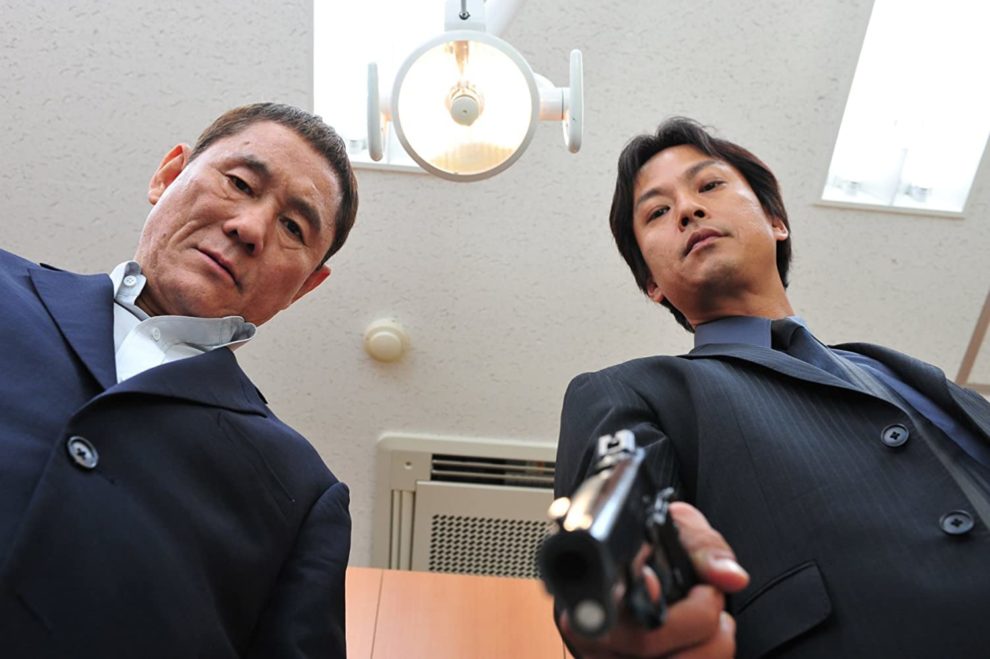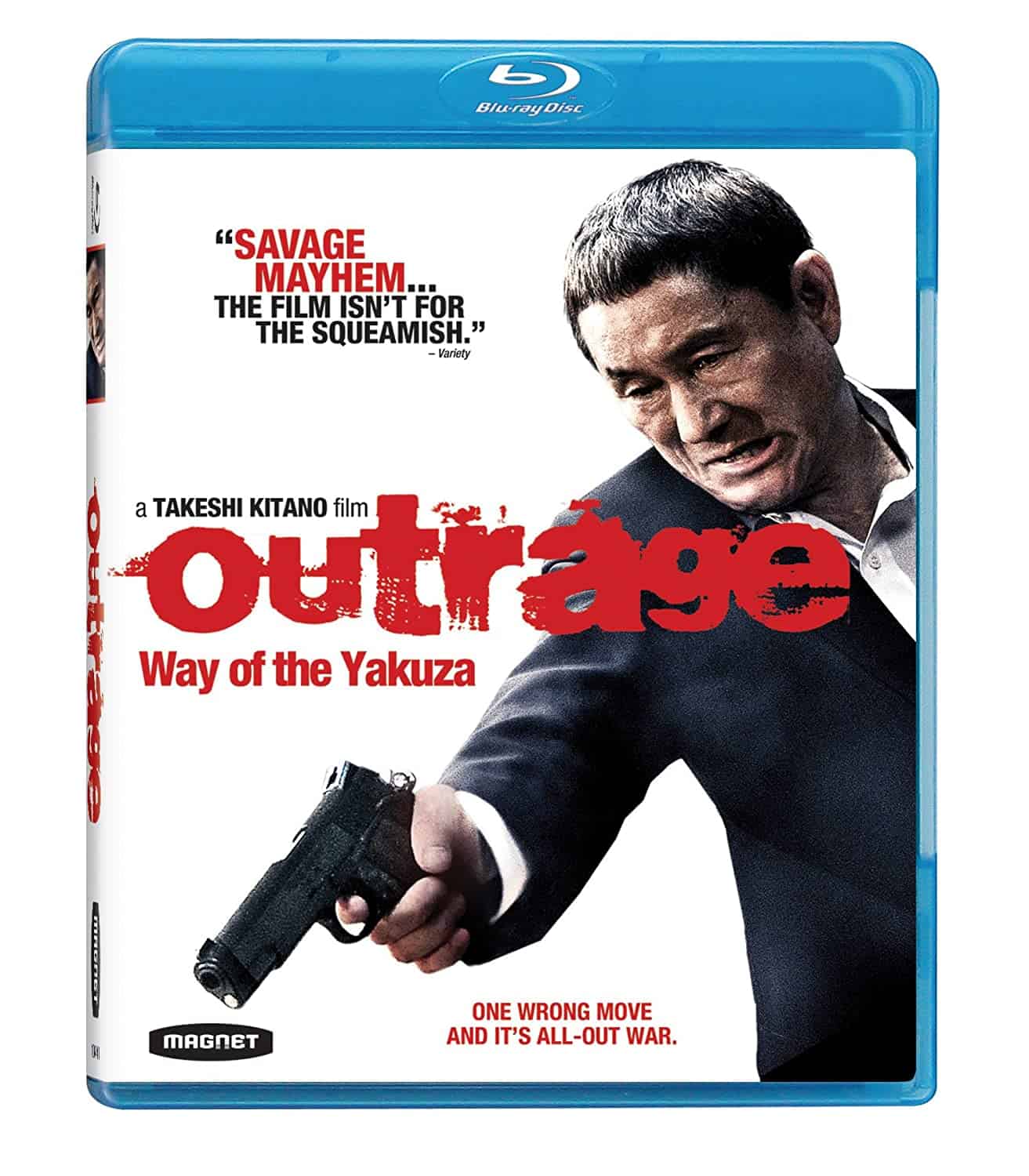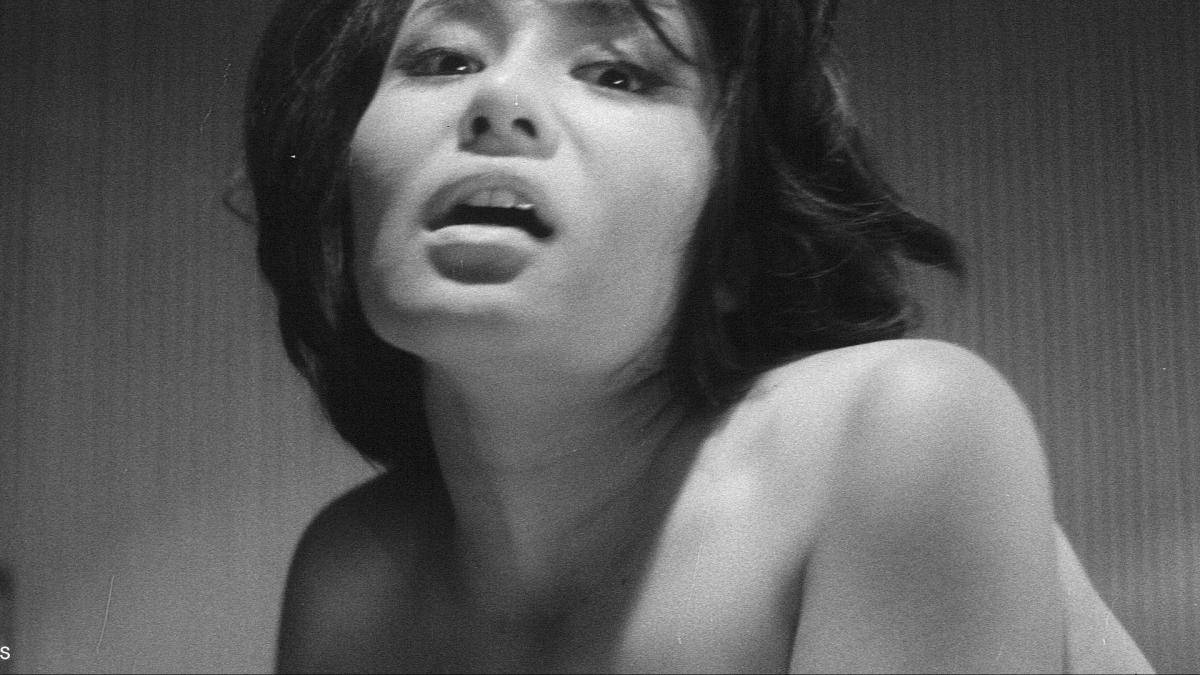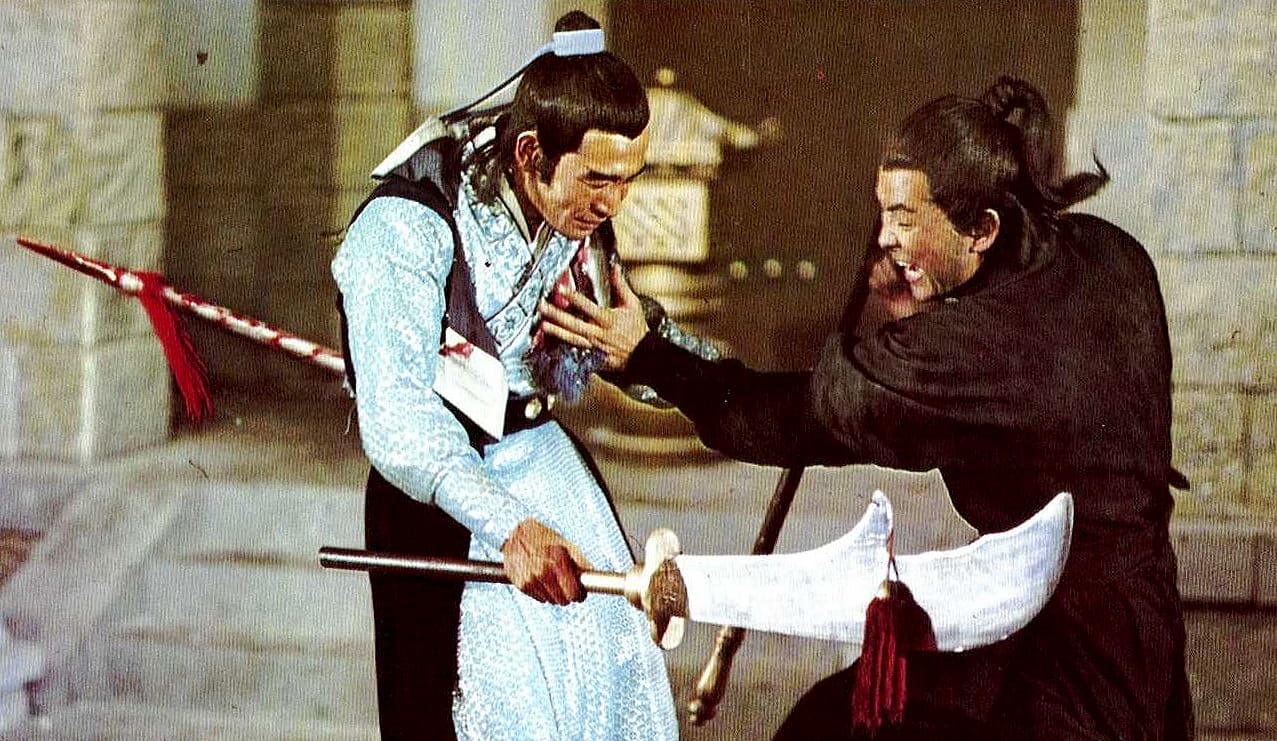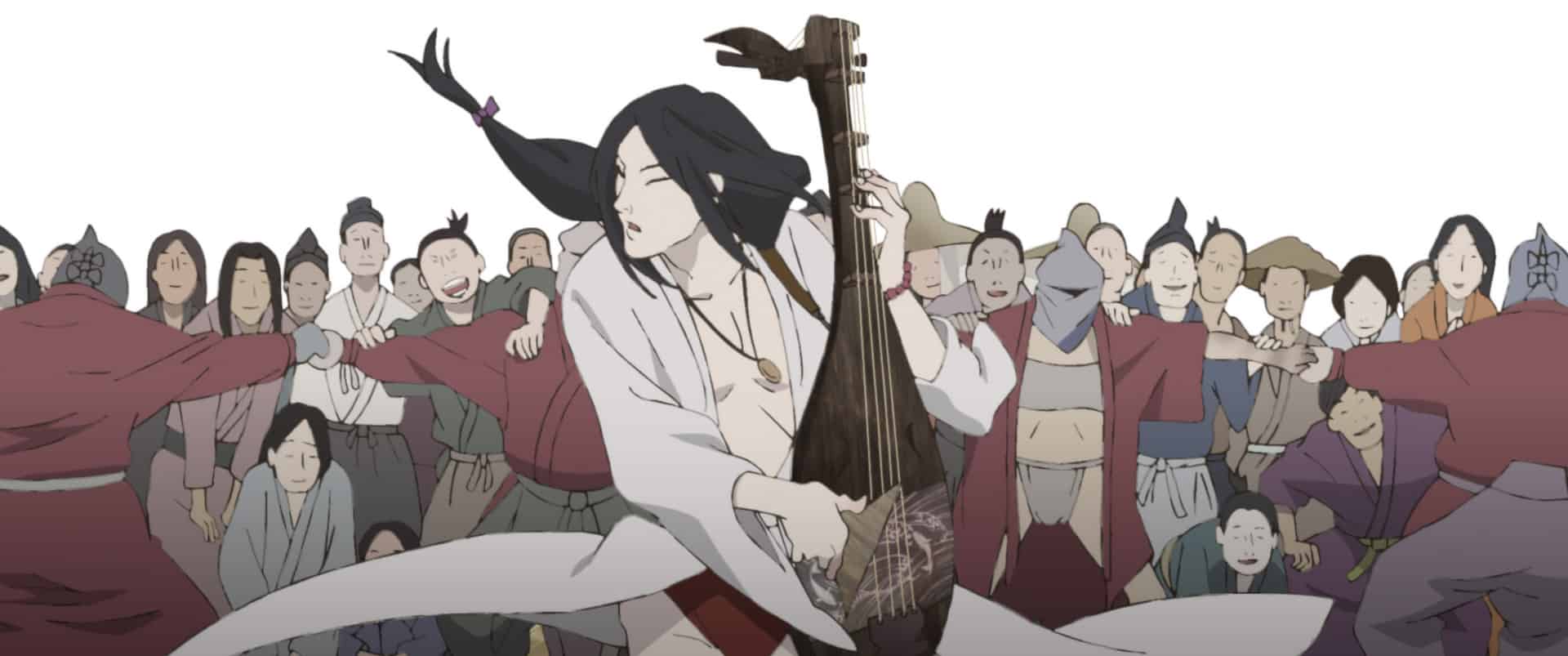After three features which focused on Japanese media, society and the cult surrounding his own persona, director Takeshi Kitano decided to return to the yakuza-genre with “Outrage”, which was the start of a trilogy of movies about the inner turmoil of a criminal syndicate. Given the commercial failure of works such as “Takeshis'” and “Achilles and the Tortoise”, this decision was perhaps also fueled by the idea of winning back the kind of audience that got to know the filmmaker through “Sonatine”, “Brother” or “Hana-Bi”. While this premise does not actually sound like “Outrage” might be Kitano's passion project, the movie itself, along with its successors, is easily one of the best works of the director and, at the very least, another look at the connections of organized crime and society.
After a meeting at the headquarters of the Sanno-kai, one of the largest crime syndicates of the region, Ikemoto (Jun Kunimura), one of the many under-bosses, is given the order to sever his ties with gang leader Murase (Renji Ishibashi). Considering the two have spent time in jail together and have become brothers, Ikemoto decides to give the matter over to his subordinate Otomo (Kitano), who is supposed to start a conflict with Murase's gang to keep up appearances with the Sanno-kai, while also not angering him too much and endanger their partnership.
However, after a minor incident at one of Murase's night clubs, the affair quickly gets out of control, with Otomo and his men finding themselves as pawns caught in the middle of diverting interests. As his boss attempts to balance his partnership with his brother and his status within the clan, the leader of the Sanno-kai apparently has other plans, which involve getting rid of the competition and an under-boss who has become too weak over time. Even though he tries his best of setting the record straight, Otomo realizes he has become the scapegoat for all parties involved, which starts an all-out war within the yakuza clan.
In many ways, what Kitano has accomplished with the “Outrage”-trilogy is creating the anti-”Godfather”. While Francis Ford Coppola's gangsters, or for that matter even the ones in Kinji Fukasaku's “Battles Without Honor and Humanity”, had principles and character traits which qualified them as heroes, for example, their family bond or their struggle to survive, there is no such thing in “Outrage”. The various leaders and their thugs, no matter what their position is within the yakuza hierarchy, are indistinguishable in their greed, lust for power and, most significantly, their cold-heartedness. You might say that even fans of the director's former ventures within the genre will be disappointed in “Outrage” (and its sequels) considering there is nothing elegant or melancholic about these gangsters who are brutally calculating their next move, and whose fate is decided by their position within the food chain of the clan.
This sobering and often brutal look at the world of the yakuza is reflected in the movie's aesthetics, its score and the performances. Keiichi Suzuki's score, a blend of electronic tunes and rhythms, highlights the mood in this world we get a glimpse of, where a life means nothing and everyone, also innocent bystanders, can become victims if it serves the power schemes of those in charge. Fittingly, Kitano and cinematographer Katsumi Yanagishima rely on blue filters along with very little camera movement to portray this world, as well as the increasing turmoils later on as some of the plans and schemes backfire and upset the order of the clan. Emphasized by the color scheme of his costume, Otomo remains one of the only exceptions within this ensemble of gangsters, as he voices his growing impatience with weak leaders, broken promises and how his status within the Sanno-kai makes him vulnerable. Aside from Kitano's performance, perhaps the most noteworthy are Kippei Shinna as Otomo's right-hand man Mizuno and Tomokazu Miura as Kato, the assistant to the boss of the clan.
In conclusion, “Outrage” is a great gangster movie, showing there is still some interesting themes and ideas which can be told within the genre. Takeshi Kitano gives his viewer a cold, often violent glimpse into the world of crime, its schemes and character traits, which more than once seems to mirror the hierarchy of a modern company.


